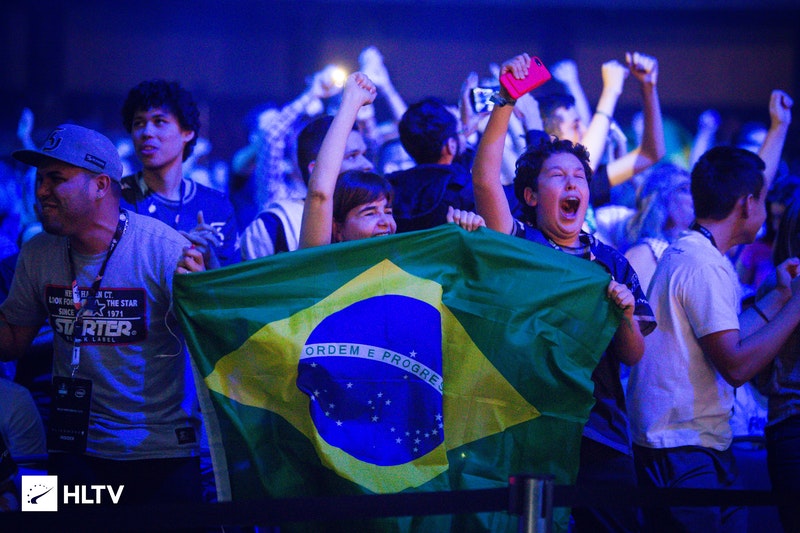This year has seen esports betting dominate global news cycles far-and-wide as traditional sports went temporarily offline. Operators armed with esports offerings saw sharp spikes in company KPIs while other stakeholders, yet to take the plunge in competitive gaming, were all but forced to acknowledge the potential of this area.
One region of the world that is not typically discussed, with regards to betting on esports, is Latin America (LATAM). Foggy regulation and a lack of urgency for sports betting legislation has seen this area been consistently looked over, however, it’s recently become an increasingly important point of the esports handle’s expansion, though there is some groundwork still to be laid.
In this edition of the ESI Gambling Report, presented by Oddin.gg, we’ll dig into Latin America’s prospects, and hurdles, surrounding esports wagering, and what has made this area a point of contention for operators worldwide.
Regulation is a bit of a mixed story across LATAM; most regions are considered ‘gray markets,’ which means sports betting is neither licensed but not necessarily closely monitored either. This often prevents offshore bookmakers from operating locally whether that be engaging in land-based activations or local promotions, though in most cases they are still able to accept bettors from these markets with a global license such as the Isle of Man. Hesitation has kept operators at bay from launching in the region, with most awaiting proper regulation as the call for legalised sports betting boils to a head in local government bodies.
RELATED: DRIVE by DraftKings invests in Warriors International
Technological advancements often outpace the enactment of legislation, so while bettors and operators alike are chomping at the bit to support online esports betting, it has to unfold naturally in office – which during a global pandemic, can be difficult to process. For some regions such as Chile, who have been hit particularly hard by land-based casino closings, esports betting is a tantalising opportunity which shows promise, though it’s deceptively close yet far.
“In Chile, we have noticed that online gambling isn’t as popular as retail casinos, but still, there has been considerable growth not only in sports betting but also esports, iGaming,” said Rodrigo Ajenjo on behalf of Chilean gambling regulator Superintendencia de Casinos de Juego during the GAT Virtual Expo in October. “Those segments are experiencing exponential growth and probably, they will eventually surpass land-based gaming.”
In July 2019, Puerto Rico ratified regulation to legalise sports betting with further progress made in August due to additional legalisation developed in partnership with Gaming Laboratories International. The current guidelines permit wagering on esports, though the unincorporated US territory is still a generally uninvested area. While trailing behind other parts of Latin America, Puerto Rico betting authorities have supposedly “doubled” resources committed to speeding up the maturation of online betting.
RELATED: ESIC welcomes Varsity Esports Foundation as strategic member
“An advisory committee has already been created to deal with online gaming, which shows the government is committed to promoting esports in Puerto Rico,” José Maymo Azize, Head of Puerto Rico’s gambling regulator said at GAT Virtual Expo. “In fact, in light of the ongoing COVID-19 pandemic, we have doubled our resources to speed up the creation of the necessary regulation aimed not at legalising esports, which are already allowed in Puerto Rico, but to introduce wagers on that activity, together with traditional and fantasy sports betting.”
Viva Brazil
Another important piece of the LATAM esports betting discussion surrounds Brazil, and rightfully so. With a massive population orbiting 200m people and a teetering piece of key sports betting legislation, operators are looking to strike while the iron is hot. Led by the local federal government and initially intended to come into effect in 2020, it’s likely Brazil won’t see sports betting governance until 2021 at the earliest. Although, this certainly won’t deter stakeholders from getting excited due to the rise in anticipation.
Perhaps more exciting about the Brazilian market is the deep sports fandom and nationalistic pride of its residents. This notion is true for esports, too. In a region where games like Counter-Strike are referred to as religion and Brazilian organisations like MIBR and FURIA cause oceans of fans to flood the timelines of Twitter, win or loss, is a valuable proposition for driving both brand engagement and volume to bookmakers.

Online sportsbook Rivalry is one of the most popular brands in Brazil, as well as throughout Latin America. Thanks to its savvy corporate strategy, team of punchy social media account operators, and the freedom to let regional leads do what they do best, Rivalry has been able to make a sharp impression on this region with its menu of esports offerings.
RELATED: Rivalry: A fresh perspective on esports betting
Despite dealing in the world of sports gambling, Rivalry tends to define itself as a media-first company, which has helped the bookmaker make a larger splash according to CEO Steven Salz.
“Anything you do in that market, if it’s resonating in any way, and you’re participating in that fandom experience of the home team, you get a natural pickup that you just don’t find in other markets,” Salz told ESI. “Wherever there’s fandom and a passion for sport in that way, there’s a natural correlation with interest in betting.”
A streamlined approach
While Rivalry is one of the more popular brands in LATAM, they are not the only ones investing in the territory. Sports betting operators Betway, BetCris, and Bet365, to name a few, are also eyeing this area as a vehicle for immense growth. Even from front running operators, the call for better platforms, products, and offerings to open up LATAM’s esports betting potential is written on the walls.
RELATED: ESI Gambling Report: New Jersey nears esports betting legislation
“The platforms always include the esports area in the same menu of all the sports. That has to be different,” said Betcris Head of Business Development Fernando Garita at ESI Digital Summer’s ‘Esports Betting in Latin America’ panel. “In traditional sports betting it’s a panel you can pick – you got the information right there, but for the esports you have to develop something different to be more attractive.”
Speaking in general, including outside Latin America, operators can do better by servicing esports punters. Those familiar to the space have all heard the golden rule that outside brands must enter from a point of authenticity, but still, further measures can be taken by those attempting to service this audience for a more targeted approach.
[primis_video widget=”5183″]
Cursory searches will show that popular esports titles vary from country to country, and can help operators better position an entry in esports. While, for example, Counter-Strike commands the majority esports attention in Brazil, League of Legends is far-and-away the most popular title in regions like Mexico and Chile.
“When we talk about core esports titles, it’s important to differentiate between countries,” said Oddin.gg Head of Partnerships Marek Suchar in an ESI interview. “There are countless differences between the most popular games across regions in Latin America, like CS:GO in Brazil, Dota 2 in Colombia, and League of Legends in Mexico. Bookmakers can help drive engagement and volume by offering more fan-favourite game titles based on the region they are servicing.”
RELATED: Oddin.gg’s Marek Suchar on building an engaging esports betting solution
Even though the scene is still very much in development, the popularity of esports in Latin America has seen impressive growth stints over the years. A large obstacle will remain continuing to grow the appeal of esports beyond Brazil. According to games and esports analytics firm Newzoo’s ‘Insights Into Latin America’s Esports Fans’ report in 2019, the country accounted for 9.2m fans, the third-most in the world. LATAM’s total audience size and revenue were additionally highlighted in the report, showing 17.5 and 19.5 percent year-over-year growth, equating to 45m fans and $32m in revenue, respectively.
The growing presence of esports, deeply passionate fans, and budding sports betting sectors has earmarked Latin America as a focal point for the esports betting evolution. It may take time before the region catches up to the bustling esports wagering economy being experienced in other areas of the world like Europe, but its room for growth and expectation for reality is becoming progressively more clear.


